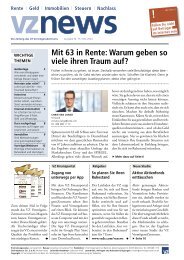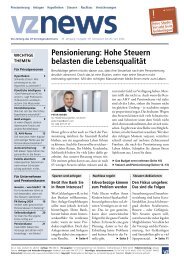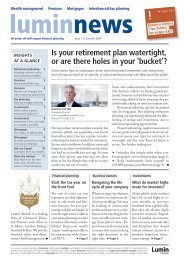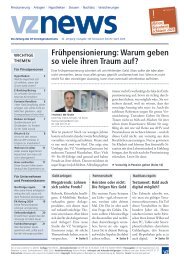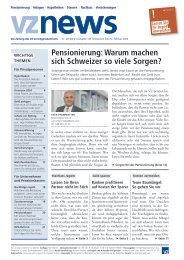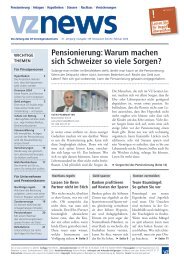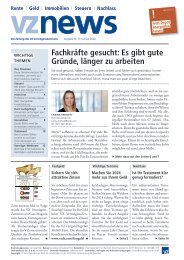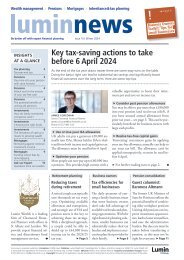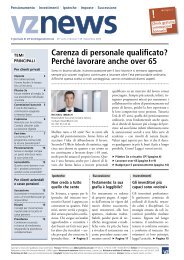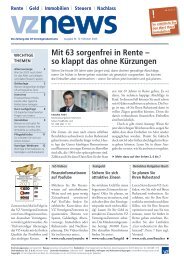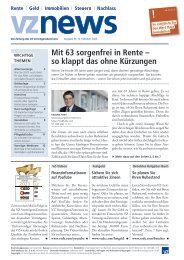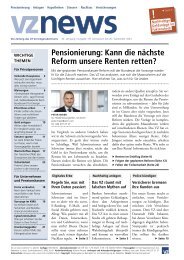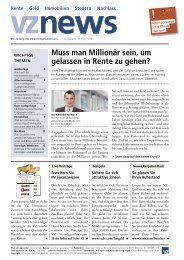lumin news Issue 8 / Summer 2023
Create successful ePaper yourself
Turn your PDF publications into a flip-book with our unique Google optimized e-Paper software.
<strong>lumin</strong> <strong>news</strong> 8 / summer <strong>2023</strong> Page 5<br />
What can business owners consider under<br />
the higher tax regime?<br />
Company directors face a challenging tax climate. But prudent financial planning<br />
can help to mitigate tax bills and boost retirement assets.<br />
KRIS FISHER<br />
Financial Consultant<br />
kris.fisher@<strong>lumin</strong>wealth.co.uk<br />
Phone 01727 893 333<br />
The standard rate of corporation<br />
tax has risen from<br />
19% to 25%, while the dividend<br />
allowance of £2,000<br />
has been halved, and is set<br />
to be halved again for the<br />
2024 /25 tax year. Dividend<br />
tax rates also remain high.<br />
What can company directors<br />
do to reduce tax and optimise<br />
their finances under<br />
these circumstances?<br />
Increase to the standard<br />
corporation tax rate<br />
The corporation tax rate has<br />
increased from 19% to 25%<br />
as of 1 April <strong>2023</strong> for limited<br />
companies with profits exceeding<br />
£250,000. Companies<br />
with profits between<br />
£50,000 and £250,000 can<br />
benefit from tapered relief<br />
(see table below).<br />
Company directors with<br />
high profit levels may wish to<br />
consider strategies to extract<br />
profits from the company in<br />
a tax-efficient manner.<br />
Taking a salary<br />
It is very common for company<br />
directors to take a salary<br />
that is equal to, or less than,<br />
the personal allowance limit<br />
(this is currently £12,570),<br />
but above the ‘lower earnings<br />
limit’ (which is £6,396 for<br />
the <strong>2023</strong>/24 tax year). This<br />
allows directors to build up<br />
qualifying years for their<br />
State Pension, without actually<br />
paying any National Insurance<br />
contributions.<br />
Salaries also count as an<br />
‘allowable expense’, so a company<br />
director can pay themselves<br />
a salary to reduce their<br />
corporation tax bill.<br />
Corporation tax rates have increased<br />
2022/23 <strong>2023</strong>/24<br />
Companies with profits<br />
under £50,000 19% 19%<br />
Companies with profits<br />
over £250,000 19% 25%<br />
Companies with profits<br />
between £50,000 and £250,000 19%<br />
19 – 24.99%<br />
(tapered)<br />
Changes to the tax-free dividend allowance<br />
Tax year<br />
Dividend tax rates are<br />
currently high<br />
Dividend tax rates remain<br />
high. A planned 1.25% reduction<br />
to <strong>2023</strong>/24 dividend<br />
rates was cancelled in October<br />
2022, with rates currently<br />
8.75% for basic rate<br />
taxpayers, and 33.75% and<br />
39.35% for higher rate and<br />
additional rate taxpayers respectively.<br />
The tax-free dividend<br />
allowance, which was<br />
formerly £2,000, has been<br />
cut to £1,000 for <strong>2023</strong>/24,<br />
and is set to be reduced to<br />
£500 from 2024/25 (see the<br />
table above).<br />
Dividends are paid out<br />
of retained profits, on which<br />
corporation tax has already<br />
been paid. This could mean<br />
there are less dividends to<br />
distribute once a tax charge<br />
of 25% has been applied. A<br />
thorough review of various<br />
income strategies and streams<br />
may be able to help company<br />
directors substantially reduce<br />
their tax bill.<br />
Pension contributions<br />
can help reduce tax<br />
For a company director, paying<br />
into a pension via employer<br />
contributions can be<br />
a tax-efficient way of extracting<br />
profits from their business,<br />
while saving more towards<br />
retirement. Pension<br />
contributions are an allowable<br />
business expense, resulting<br />
in corporation tax<br />
savings. Another significant<br />
benefit is that employers can<br />
also save on the 13.8% National<br />
Insurance tax charge<br />
by contributing directly into<br />
a pension, rather than paying<br />
it on a salary.<br />
Making a large payment<br />
with carry forward<br />
You can now contribute up<br />
to £60,000 to your pension<br />
per year, unless you are a<br />
higher earner and subject to<br />
a tapered annual allowance.<br />
The maximum contribution<br />
with tax relief can be up to<br />
£180,000 in a single tax year,<br />
if you have unused allowances<br />
from the prior three tax<br />
years and were a member of<br />
a pension plan. You must use<br />
up your annual allowance<br />
from the current tax year before<br />
carrying forward. Unlike<br />
personal contributions, employer<br />
contributions via the<br />
company are not restricted<br />
by relevant UK earnings.<br />
With the right financial<br />
planning, business<br />
owners can reduce tax and<br />
boost retirement outcomes.<br />
To find out more please call<br />
03300 564 446.<br />
FACTSHEET<br />
Dividend allowance<br />
2022 / 23 £2,000<br />
<strong>2023</strong> / 24 £1,000<br />
2024 / 25 £500<br />
Your options for<br />
your pensions<br />
Request a free factsheet<br />
via enclosed response card,<br />
info@<strong>lumin</strong>wealth.co.uk<br />
or call the Lumin team on<br />
03300 564 446





